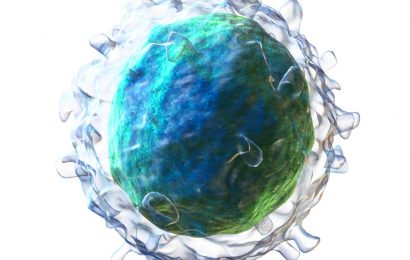NEW YORK (Reuters Health) – Combining p53 nanotherapy with anti-PD-1 immunotherapy reversed immunosuppression and improved anti-tumor activity compared to either therapy alone in a mouse model of liver cancer, a proof-of-concept study shows.
“Our… results suggest that this new combinatorial approach could be transformative for treating hepatocellular cancer (HCC) and possibly other cancers with loss of p53 function,” Dr. Jinjun Shi of Brigham and Women’s Hospital and Dr. Dan Duda of Massachusetts General Hospital told Reuters Health by email.
“The tumor suppressor gene p53 is widely mutated in many cancers, yet effectively restoring its function for cancer treatment remains an unmet need,” they said. “We are actively working on the engineering and optimization of p53 mRNA lipid nanoparticles for clinical translation. Lipid nanoparticles are already used clinically, and so are the mRNA strategies. Thus, we think this is achievable in a foreseeable future.”
As reported in Nature Communications, in a series of experiments in the laboratory and in mice, Drs. Shi, Duda and colleagues examined the effects of restoring p53 expression on the immune tumor microenvironment (TME) and immune checkpoint blockade (ICB) efficacy.
To do so, they developed and optimized a CXCR4-targeted mRNA nanoparticle platform to induce p53 expression in p53-null HCC models. They found that combining CXCR4-targeted p53 mRNA nanoparticles with anti-PD-1 therapy effectively induced a global reprogramming of the cellular and molecular components of the immune TME. This resulted in improved antitumor effects compared to anti-PD-1 therapy or p53 nanotherapy therapy alone.
Drs. Shi and Duda said, “The use of mRNA nanoparticles represents a novel and robust strategy for reactivating p53 expression, and should be tested in combination with immunotherapy, particularly in tumors which have lost p53 function.”
Dr. Zhaohui Feng, a professor in the departments of radiation oncology and pharmacology at Rutgers Cancer Institute of New Jersey commented by email that mRNA “has shown tremendous potential for cancer treatment.”
“This exciting work using animal models demonstrated that mRNA can robustly restore p53 functions that are frequently impaired or lost in many cancers, and that p53 mRNA nanotherapy in combination with immunotherapy are promising for liver cancer,” he said. “It will be interesting to see how well this strategy may work for other cancer types and for clinical trials in cancer patients.”
“More specific and efficient delivery of p53 mRNA to tumors to reduce the toxicity to normal tissues will be crucial, which has been a challenge in the cancer nanomedicine field, as well as for other cancer drugs,” Dr. Feng concluded.
SOURCE: https://go.nature.com/3hcOiQI Nature Communications, online February 9, 2022.
Source: Read Full Article


